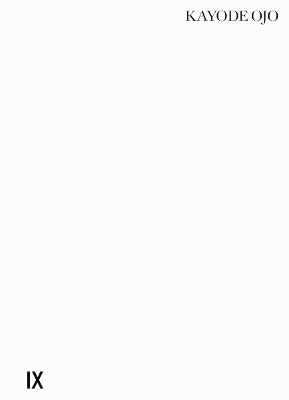Clarion
1 total work
Kayode Ojo’s sculptural installations made of ready-made items prompt reflections on class, consumption, and the fragility of luxury.
“There is a sense of urgency in these fleeting collisions between fashion and art. It’s the kind of tenuous exchange between culture and commerce that he does best.” —W magazine
Replete with sequins, chrome finishes, and transparent and reflective surfaces, Ojo’s sleek sculptures move between the related visual languages of delicate minimalism and glittering opulence, foregrounding the transformative power of the material object and its ability to transport its owner through dimensions of time, place, and social status. Sourcing his materials from fast-fashion websites and online shopping hubs, the artist weaves the familiar cadences of searching, scrolling, purchasing, and receiving into his nimble artistic practice. Ojo works instinctively to refashion these items into poetic yet perverse arrangements that make visible the phenomenon of social aspiration, unveiling its double-edged nature as a facilitator of both belonging and instability.
Texts in this volume, including a curator’s note by Ebony L. Haynes and an essay by Serubiri Moses, explore Ojo’s influences and examine the consumerism that is both called out by and a central component of the artist’s creative practice.
“There is a sense of urgency in these fleeting collisions between fashion and art. It’s the kind of tenuous exchange between culture and commerce that he does best.” —W magazine
Replete with sequins, chrome finishes, and transparent and reflective surfaces, Ojo’s sleek sculptures move between the related visual languages of delicate minimalism and glittering opulence, foregrounding the transformative power of the material object and its ability to transport its owner through dimensions of time, place, and social status. Sourcing his materials from fast-fashion websites and online shopping hubs, the artist weaves the familiar cadences of searching, scrolling, purchasing, and receiving into his nimble artistic practice. Ojo works instinctively to refashion these items into poetic yet perverse arrangements that make visible the phenomenon of social aspiration, unveiling its double-edged nature as a facilitator of both belonging and instability.
Texts in this volume, including a curator’s note by Ebony L. Haynes and an essay by Serubiri Moses, explore Ojo’s influences and examine the consumerism that is both called out by and a central component of the artist’s creative practice.
